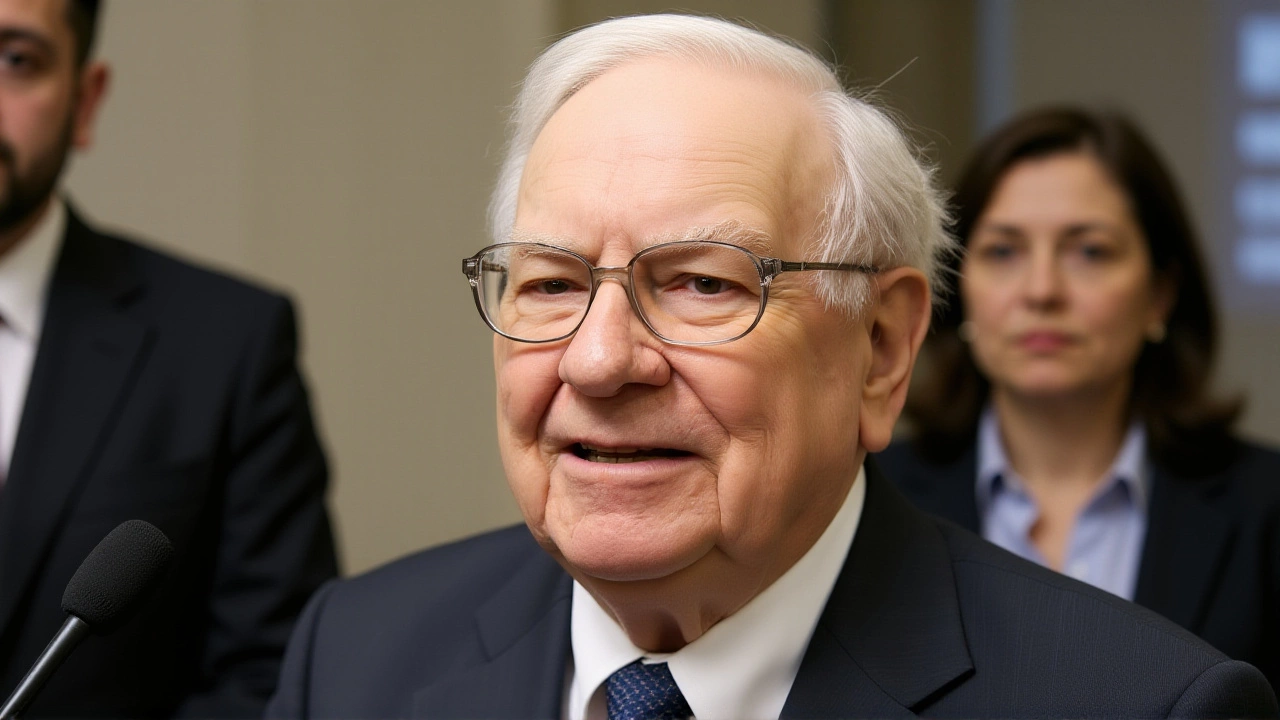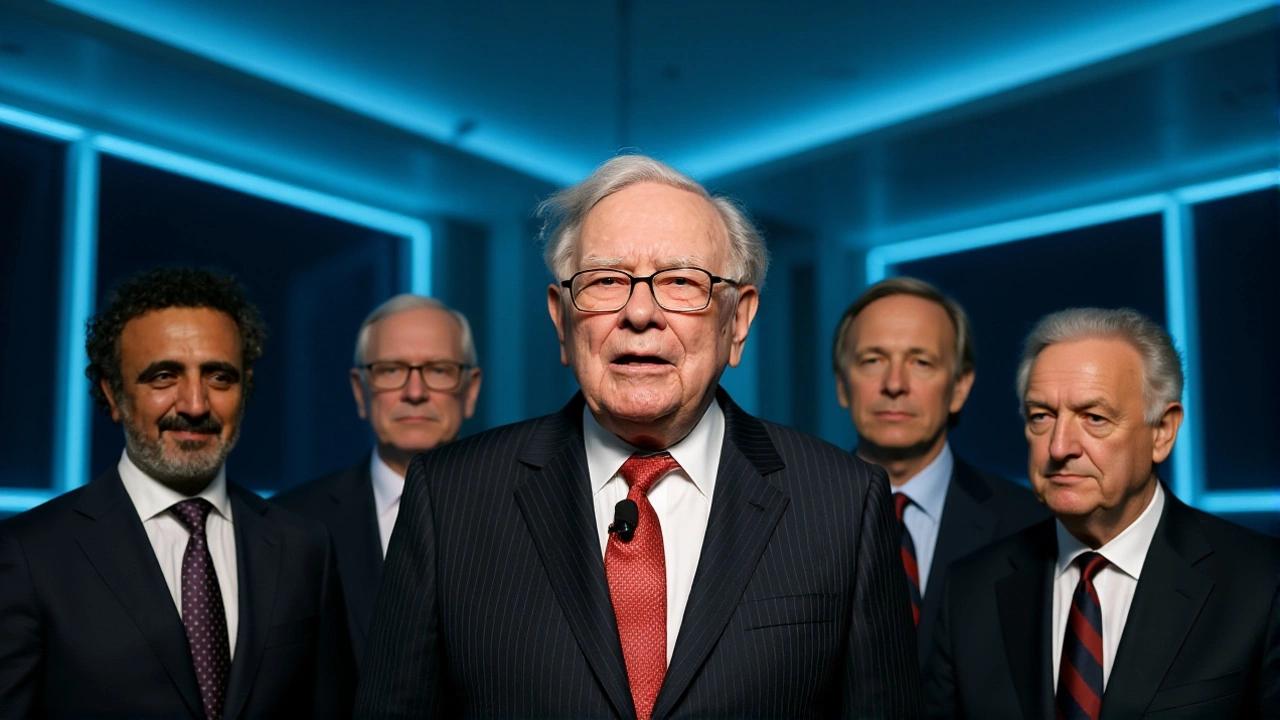On November 24, 2025, at 2:40 PM UTC, Warren Edward Buffett, the 95-year-old architect of one of the most successful investment empires in history, announced he would step down as CEO of Berkshire Hathaway Inc. effective December 31, 2025. It wasn’t a surprise — investors had been bracing for this moment for years. But the quiet dignity of his departure? That’s what made it extraordinary. After six decades at the helm, Buffett isn’t just leaving a job. He’s closing the final chapter of an era that reshaped American capitalism.
A Selfless Exit in a World of Power Grabs
Here’s the thing: most Fortune 500 CEOs don’t leave on their own terms. They’re pushed out by boardroom drama, stock crashes, or scandals. But Buffett? He walked away because he chose to — not because he had to. And that’s why a McKinsey & Company, Inc. executive, dubbed a "CEO whisperer" by AOL, called it "leadership at its most selfless."
McKinsey, the global consulting giant headquartered in New York City, specializes in executive transitions. Their experts have seen hundreds of CEO successions — many messy, some catastrophic. But Buffett’s plan? Clean. Deliberate. Unselfish. He didn’t cling to power. He didn’t wait for a crisis to force his hand. He gave his successor, Gregory Abel, the space to prepare — and the public clarity to trust the transition.
The Man Who Will Carry the Torch
Gregory Abel — known to colleagues as "Greg" — isn’t a newcomer. He’s been Buffett’s right hand for over a decade. As Vice Chairman of Non-Insurance Operations since 2018, Abel oversaw Berkshire’s sprawling portfolio of railroads, utilities, and manufacturing businesses. He didn’t need a coronation. He’d already been running half the company.
When Buffett named him successor in 2020, insiders whispered it was the quietest succession announcement in corporate history. No press conference. No fanfare. Just a brief note in the annual letter. Now, on January 1, 2026, Abel formally assumes the CEO title. No interim period. No uncertainty. Just continuity.
"He’s the perfect bridge," said one longtime Berkshire shareholder, who spoke on condition of anonymity. "Warren built the brand. Greg runs the machines. He doesn’t need to be the next Buffett — he just needs to be Greg Abel, and that’s enough."

Why This Matters Beyond Omaha
Omaha, Nebraska isn’t Wall Street. It’s a city of modest skyscrapers and Midwestern pragmatism. But for 60 years, it’s been the nerve center of global finance. Buffett didn’t just manage money — he modeled integrity. He lived simply. He wrote letters, not press releases. He valued long-term thinking over quarterly earnings.
That’s why this transition isn’t just about Berkshire. It’s a textbook case for every family business, every public company, every board struggling with succession. Most CEOs plan for retirement in their 60s. Buffett waited until 95. And he didn’t wait until he was too weak to lead. He left while he still had clarity.
Compare that to the chaotic exits of CEOs at companies like General Electric or Sears. Their transitions were reactive, emotional, often damaging. Buffett’s was surgical. Precise. And it cost nothing but time.
What Happens When the Oracle Goes Quiet
Buffett’s farewell letter, published alongside the announcement, didn’t offer grand philosophies or final advice. It was brief. Grateful. Thanking shareholders, employees, and his family. The phrase "I’m going quiet" — used by AOL — wasn’t poetic flourish. It was a promise.
He won’t be on the board. He won’t give interviews. He won’t weigh in on acquisitions. At 95, he’s stepping fully away. No advisory role. No shadow leadership. Just a retired man who’s done what he set out to do.
That’s the most radical part. In an age where founders cling to influence long after they’ve stepped down — think Steve Jobs at Apple or Elon Musk at Tesla — Buffett’s silence is a statement. He trusted his team. He trusted the system. He trusted the culture he built.

The Legacy That Won’t Fade
Berkshire Hathaway didn’t become a $700 billion empire by accident. It was built on Buffett’s discipline: buy businesses you understand, hold them forever, treat employees like partners. Abel inherits not just a company, but a code.
Will Abel match Buffett’s returns? Probably not. No one will. But he doesn’t need to. His job isn’t to be the next Oracle of Omaha. It’s to protect what Buffett built — and let Berkshire evolve without losing its soul.
And that’s the real lesson. Great leadership isn’t about being irreplaceable. It’s about making yourself replaceable.
Frequently Asked Questions
Who is Gregory Abel, and why was he chosen as Buffett’s successor?
Gregory Abel, currently Vice Chairman of Non-Insurance Operations at Berkshire Hathaway, has been groomed for this role since at least 2020. He oversees the company’s energy, rail, and manufacturing divisions — which account for nearly two-thirds of Berkshire’s operating earnings. Unlike many corporate heirs, Abel didn’t come from finance; he rose through operational excellence, making him the ideal steward for Buffett’s hands-on, business-first philosophy.
Why is Buffett’s retirement considered a model for Fortune 500 companies?
Unlike most CEO transitions, which happen under pressure or crisis, Buffett planned his exit years in advance, publicly named his successor early, and stepped away completely. This avoids the leadership vacuum and investor panic that often follow sudden departures. McKinsey & Company cites this as a rare example of "selfless succession," where the founder prioritizes organizational stability over personal legacy.
What does Buffett’s "going quiet" mean for Berkshire Hathaway’s future?
Buffett’s silence signals a clean break: no behind-the-scenes influence, no last-minute advice, no public commentary. This forces Abel to lead independently, which strengthens institutional credibility. Investors know decisions now come from Abel’s team — not from the ghost of Buffett. It’s a test of whether Berkshire’s culture can survive without its founder’s voice.
How long has Warren Buffett led Berkshire Hathaway, and what’s his track record?
Buffett took control of Berkshire Hathaway in 1965, when it was a struggling textile company worth $19 million. Under his leadership, it grew into a $700 billion conglomerate with holdings in Apple, Coca-Cola, American Express, and BNSF Railway. Over 60 years, Berkshire’s stock returned over 3.7 million percent — far outpacing the S&P 500. His annual shareholder letters remain required reading for investors worldwide.
Will Berkshire Hathaway change under Gregory Abel’s leadership?
Expect continuity, not revolution. Abel is known for his operational rigor and low-key style — he’ll likely maintain Buffett’s core principles: avoid debt, invest in durable businesses, and treat employees with respect. But he may accelerate investments in clean energy and technology, areas Buffett avoided. The company’s culture will stay intact; its strategy may evolve — subtly, but meaningfully.
What’s next for Warren Buffett after retirement?
Buffett plans to live in the same Omaha home he’s owned since 1958. He’ll likely continue managing his personal investment portfolio, though he won’t influence Berkshire’s decisions. Friends say he’ll spend more time with family, play bridge, and possibly write a memoir. But he’s made it clear: his public role as CEO ends on December 31, 2025 — and he intends to stay retired.
